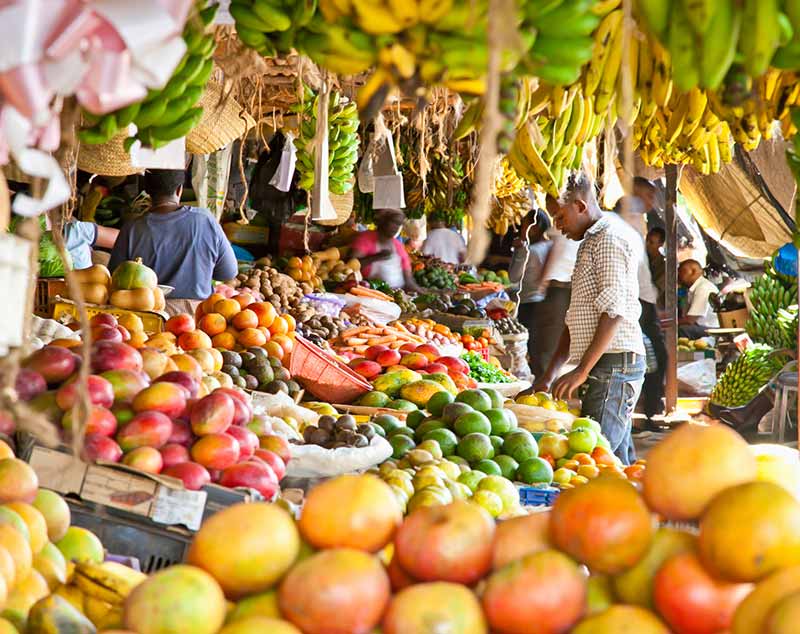Agribusiness development is highly touted by many development practitioners as Africa’s way out of poverty. There is also concurrence amongst these practitioners that a ‘paradigm’ shift in doing business-as-usual in agricultural marketing is urgently needed.
Traditional concepts of marketing and exporting unprocessed agricultural products need to be changed for taking advantage of emerging markets and changing consumption habits of the growing number of African urbanites.
Historically agriculture – particularly the agribusiness industry – has been the harbinger for sustained economic development across the globe. Value-addition of commodity-based light industrialization for rural communities not only creates jobs but also sustains lives and livelihoods of the rural poor. Worldwide, the demand for agricultural products is driven by a growing population, increased urbanization, economic growth and changing eating habits. All these critical factors are happening in Somalia. There is a burgeoning affluent class within major cities with an increasing number of Somali diasporas returning in droves to settle in the country. Such a scenario presents opportunities for developing consumer-tailored agribusinesses.
Somalia has the potential for an increase in agricultural production and economic growth provided enabling institutional and marketing policies are laid out. The country’s growing population with its domino effect on food security and urbanization rates necessitates a refocus on agricultural development policies and economic growth strategies. Value-addition within the country of certain crops can offset the drain expensive imports have on an economy that continues to struggle due to more than two decades-long civil war.
The over-reliance on processed food imports especially those that can be manufactured locally will likely have a negative effect on future economic growth. Agribusiness development in Somalia should be transformative in order to provide rapid and broad-based economic growth.
Policies should target interventions with entry points along the entire agribusiness value chain to ensure that the strategy remains efficient and effective. In addition, local value-added products can easily compete with expensive imports due to the cheap labour and minimum transport costs to urban markets. It is worth noting here that a gendered approach to agricultural development is essential in general, given the important role that women play in farming.
There are an estimated half a billion smallholders in the world, but women often have insecurity of land tenure and can be less empowered to negotiate their way fairly into supply chains on their own. Agribusinesses are labour-intensive by creating jobs in value-adding and agro-processing activities. The creation of many jobs along the value chain lifts many of the rural poor out of the poverty and the misery they live in. Investors can take advantage of the readily available local market.
A partnership between public and private agribusinesses and smallholder producers in creating ready markets for their produce is mutually benefiting for both the producers and processors. However, creating a conducive environment to unlock Somalia’s agricultural potential needs governmental macroeconomic and political support.. It is a challenge to transform the traditional way of doing things but the business opportunity is there for the more adventurous business developers willing to experiment and think creatively.
The country needs to create market-oriented agribusinesses targeting its growing affluent urban consumers who demand a diverse range of products of a high quality standard. The local economy is recovering as witnessed by the construction boom and the proliferation of stores selling high end-products in major cities across Somalia. The industrial sector in Somalia was rudimentary even before the 90s when Somalia had a functioning government. Even then, the moderately developed state-driven agricultural processing industry was restricted in scope and scale. The long civil war brought any gains made during those times to an abrupt halt.
Value added agriculture is not without its challenges to aspiring entrepreneurs, particularly in Somalia. For example, food safety and quality control measures are important hurdles to overcome. The food processing sector is presently constrained by a number of hurdles including weak linkages with producers poor marketing skills; absence of infrastructure (physical or otherwise); inadequate processing methods; basic safety processing knowledge and access to equipment and packaging technology.
Creating a popular and hygienic recipe is a significantly challenging effort at best. Before even starting one must research the market potential and consumer preferences for formulating successful market-responsive and demand-driven products. There is potential for progress though, considering the extraordinary entrepreneurship skills of Somalis. Take the example of Nairobi’s Eastleigh, coined ‘little Mogadishu’. Within a record time, Somali entrepreneurs took over trade in Eastleigh; this reflects the rise of Somali capital and the maverick entrepreneurship of Somalis.
The agribusiness sector remains largely unexplored in Somalia allowing imported foods to dominate local markets. Value-added products targeting niche markets take advantage of expensive high demand products. When undertaking a value-added business it is crucial that one does a thorough study on the demand-driven market needs and gaps in the sector.
The Growth, Enterprise, Employment and Livelihoods (GEEL)
Recently USAID funded program GEEL accelerates Somalia’s growing integration into the global economy through a combination of initiatives that improve the country’s competitiveness; spur new investments; and increase market linkages and business partnerships. This program aims to boost Somali exports of quality agriculture and fish, increase dairy production, reduce reliance on imports, and increase jobs in regions recovering from years of conflict and recurrent natural disasters.
GEEL is leveraging the growing capacities of the government at the federal, regional, and local levels that build foundations that create an enabling environment for businesses to grow. Activities are focused on sectors with high potential across all regions in Somalia and Somaliland.
Mohamed Hussein Ali “Khan”
Plant Scientist, Rural Planner and Entrepreneur
The articae is first published on 8th January, 2016, edited and updated 22 May, 2020

